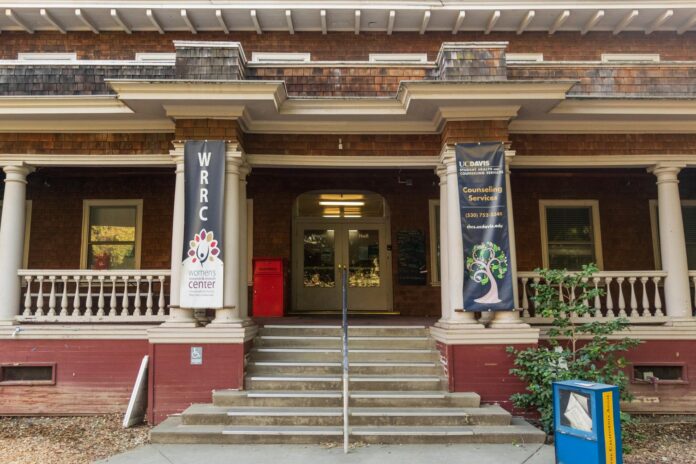Virtual counseling provides more efficient scheduling process, well-being specialist says
UC Davis’ transition to online instruction has prompted changes to campus counseling services, but some students were left unaware that these services were still provided to them despite reduced campus operations.
A third-year student who asked to remain anonymous questioned why campus counselors have not reached out to students.
“I haven’t heard from counseling services at all,” she said. “This is a time that the entire world is going through trauma.”
UC Davis Student Health and Counseling Services (SHCS) will continue operations virtually, and a variety of online mental health and wellness services are provided to UC Davis students for free.
Director of UC Davis Counseling Services Dr. Paul Kim said via email that Counseling Services is now offering appointments via video, with Telemental Health sessions, and via phone sessions to ensure that students are still able to access services.
The SHCS provides free services to all UC Davis students, regardless of insurance plans.
“Students can still access counseling services for free,” said Emilia George, a UC Davis mental well-being health promotion specialist. “That is one of the biggest myths around counseling services, that you have to pay for counseling. As a UC Davis student, you have free access to mental health support.”
George said the SHCS’s transition to an online platform has helped speed up the time between when students ask for services and when they receive them — virtual counseling services currently provide same-day or next-day appointments, and students can either set up one-time counseling sessions or a repeated session plan. Communicating with counselors is administered through “Health E-messaging,” accessible on the SHCS website.
In the past, accessing in-person counseling services has proved difficult for some. Previously, throughout the academic year, students across the UC have waited up to or over a month to see a counselor.
George oversees the student-run organization Each Aggie Matters, which promotes and spreads awareness about mental health and wellness services offered to UC Davis students. She noted that counseling services have received fewer visits since the virtual transition, but said that may be because students are unaware of pre-existing resources.
“We have therapists who are ready to support students remotely, and we just need to promote that [remote counseling] is an option to students,” George said.
Each Aggie Matters’ student ambassador Bianca Rodriguez said the organization is partnering with other mental health clubs and associations on campus to organize virtual events and to spread awareness to students who may be unaware of accessible mental health resources.
“We definitely want to remain in touch with what students are going through right now by finding different ways to reach them, even [with] something as simple as a quick Instagram story,” Rodriguez said.
Both Kim and George said, in addition to UC Davis-affiliated counseling services, UC Davis students have access to free services from Live Health Online, a third-party counseling resource that does not share information with UC Davis.
Current social distancing protocols and the emotional weight associated with a global pandemic might negatively impact students’ mental health and wellbeing, Kim said.
“The impact of COVID-19 will differ for each person, but this is a very difficult time,” he said. “It is common for people to experience increased stress, fear and anxiety.”
Third-year student Nicole Johnston, a representative from the Mental Health Initiative, said students should not hesitate to reach out to others — whether mental health professionals or friends.
Rodriguez suggested that students create a routine for their days to keep their minds balanced.
“Now that the boundaries between work and home are blurred, it is really hard to keep it separated,” Rodriguez said. “Establishing some type of routine does help.”
Johnston also said counselors may also be adjusting to changes in their home life.
“Everyone has to have a mutual understanding that counselors are human too,” Johnston said.“But they will get back to you, they are not going to leave you hanging.”
Johnston and George both said scheduling appointments has been surprisingly uncomplicated — arguably easier than accessing services prior to campus closures.
George recommended that students “take things day by day.”
“There is slight pressure that you have to be super productive right now,” George said. “But it is perfectly okay if all you do is just ‘be.’”
Written by: Hannah Blome — campus@theaggie.org









